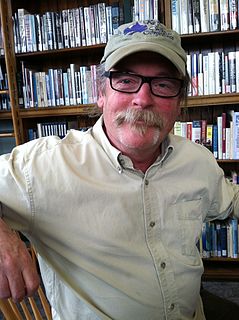A Quote by William Faulkner
The poets are almost always wrong about the facts... That's because they are not really interested in facts: only in truth...
Related Quotes
I don't like realism. We already know the real facts about li[fe], most of the basic facts. I'm not interested in repeating what we already know. We know about sex, about violence, about murder, about war. All these things, by the time we're 18, we're up to here. From there on we need interpreters. We need poets. We need philosophers. We need theologians, who take the same basic facts and work with them and help us make do with those facts. Facts alone are not enough. It's interpretation.
[The scientist] believes passionately in facts, in measured facts. He believes there are no bad facts, that all facts are good facts, though they may be facts about bad things, and his intellectual satisfaction can come only from the acquisition of accurately known facts, from their organization into a body of knowledge, in which the inter-relationship of the measured facts is the dominant consideration.
Truths emerge from facts, but they dip forward into facts again and add to them; which facts again create or reveal new truth (the word is indifferent) and so on indefinitely. The 'facts' themselves meanwhile are not true. They simply are. Truth is the function of the beliefs that start and terminate among them.
In fact, I always assumed that most everything I read was true, to one degree or another. I couldn't articulate this fact until after I read Tim O'Brien's The Things They Carried and he discussed Happening Truth, Story Truth, and Emotional Truth. I always understood that the facts of The Sun Also Rises or On the Road were the facts as dictated by a certain narrative structure, but because the experiences of those characters echoed my own feelings about the world. I knew there was a Happening Truth behind them.
Proust is interested in minutiae because life, as he sees it, is seldom ever about things but about our impression of things, not about facts but about the interpretation of facts, not about one particular feeling but about a confluence of conflicting feelings. Everything is elusive in Proust because nothing is ever certain.
I think everybody's talking about like facts and truth and you know like that 'We're here to fact check' and all of that, that's the base material of journalism. You cannot have journalism without facts and truth. But if facts and truth were what actually you know sort of moved people's lives and moved their decision-making like the election would have had a different outcome.




































